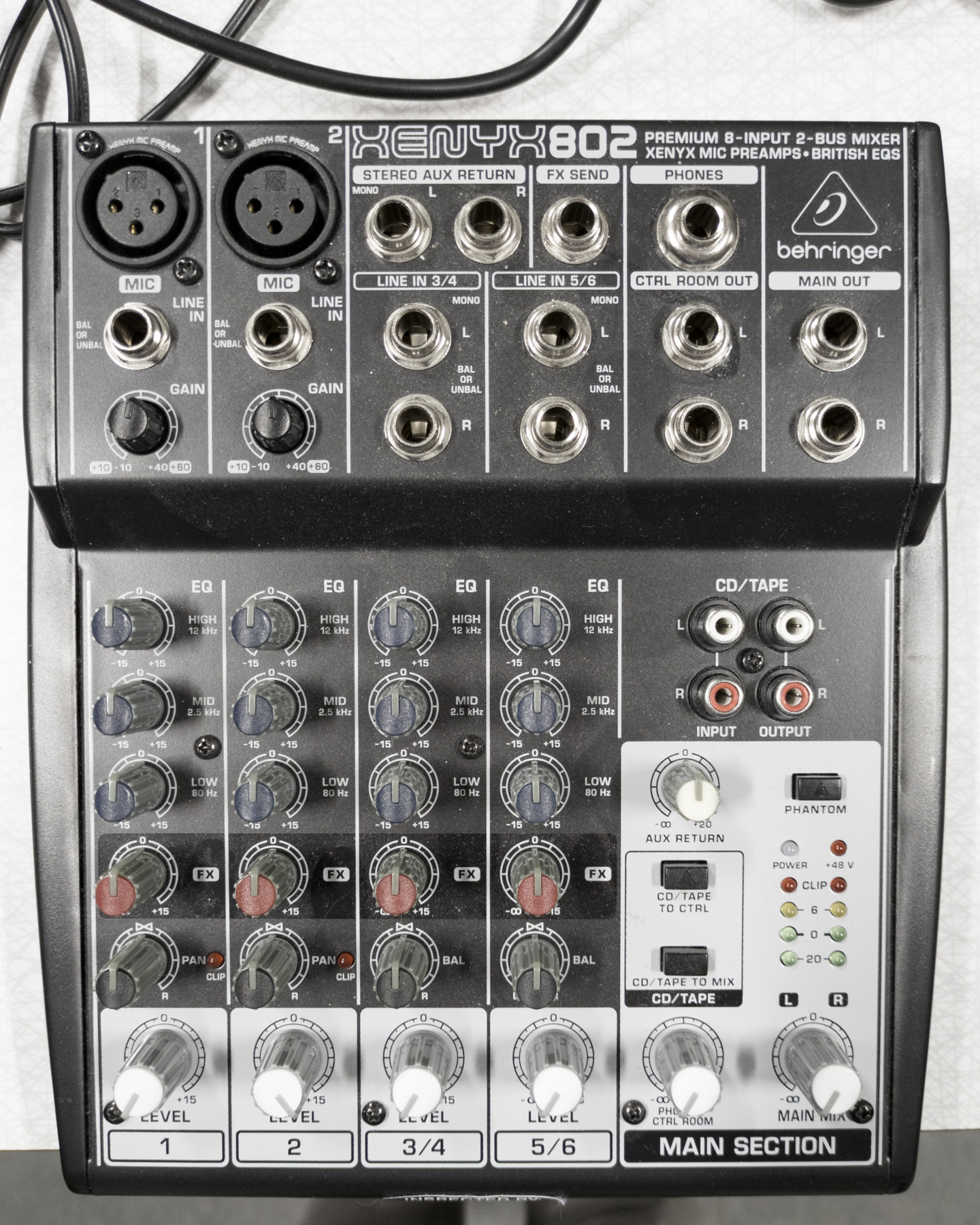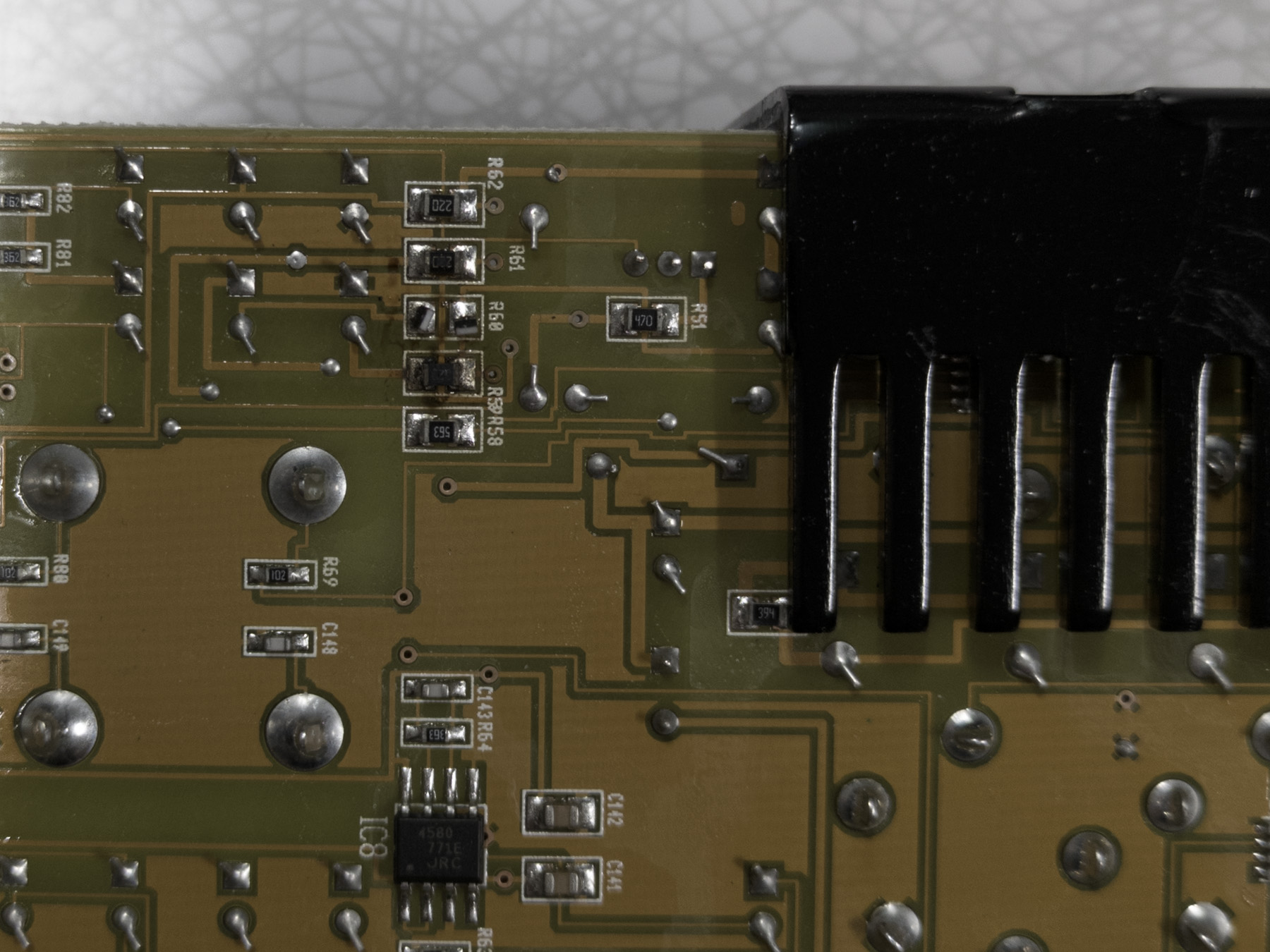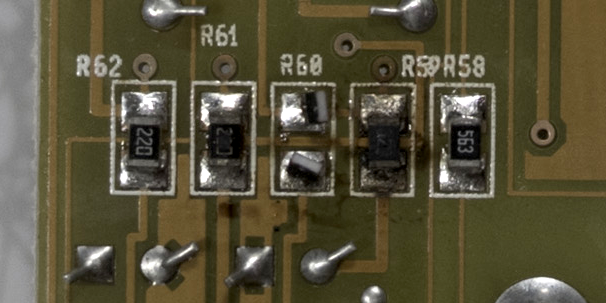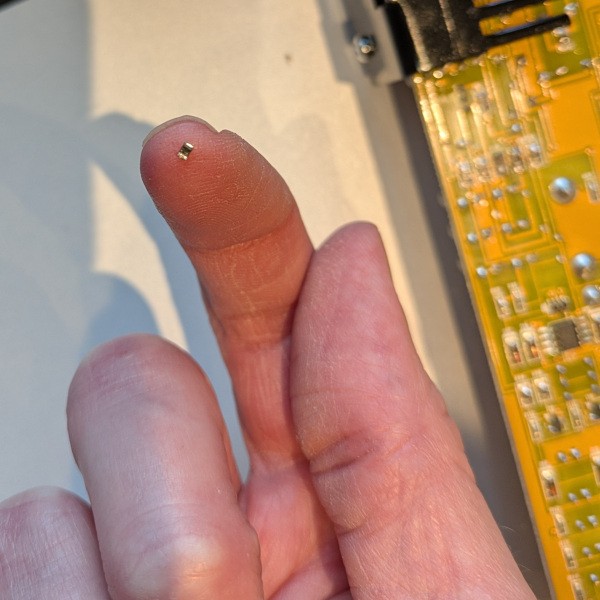Fixing a Behringer Xenix 802 Mixer
Published on: 28th July 2025
This article should not be interpreted as a tutorial. Circuit boards can include high-capacity capacitors that may retain an electric charge. Repair operations can be hazardous for those without proper technical expertise and should not be replicated without specific training and appropriate safety measures. Do not attempt to repeat these actions without the supervision of an expert.
Someone at work gave me a Behringer mixer and told that the headphone socket didn’t work. It was due to be thrown away so I said I’d have a look.

Dismantling it took a while because all of the knobs had to be removed and all of the quarter-inch jack sockets were screwed in place. Once everything was apart I had a quick look around the circuit board. Even though it’s tiny, it was clear that a resistor had exploded. Another one looked like it had overheated and was heading towards failure.

Here’s a closer look:

I found a schematic online so I could check the voltages. The voltages going into the resistors should be 15V and they were fine. The resistance of the stressed resistor should have been 22Ω (according to the schematic; the numbers had burned off the resistor) but was reading about 60Ω. So I thought I’d replace both.
I’ve never replaced a surface mount component before but with nothing to lose this was the perfect chance to have a go. I needed a magnifying glass and the tiniest solder tip I could find, but it still felt like doing microsurgery while wearing boxing gloves. I managed to get the old resistors off, clean the pads, prep them with a bit of solder and add some new ones.

I’ve tried the mixer back in work this morning and it seems to be working. However I don’t know that I’ve actually fixed the cause or treated the symptoms, so I’ll have to wait and see if it happens again. But I’m delighted to do some surface mount stuff for the first time. And I’ll definitely buy a magnifying visor or microscope if I have to do it again!